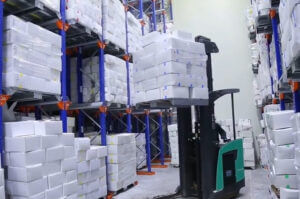high quality industrial chiller price
Understanding the Price Factors of High-Quality Industrial Chillers
When businesses look to optimize their manufacturing processes, one of the key components they invest in is an industrial chiller. These machines are crucial for maintaining optimal temperatures for various industrial applications, including plastics processing, food and beverage production, and chemical manufacturing. However, the price of high-quality industrial chillers can vary significantly based on multiple factors. Understanding these factors is essential for businesses considering an investment in this critical equipment.
1. Type of Chiller
The first factor affecting the price of industrial chillers is the type of chiller needed. Common types include air-cooled chillers, water-cooled chillers, and evaporative chillers. Each type has its strengths and weaknesses, influencing their cost. Air-cooled chillers, while typically less expensive and easier to install, may not provide the same efficiency as water-cooled models, which are often more costly due to their complexity but can offer better performance in larger applications.
2. Cooling Capacity
The cooling capacity required for a specific application also plays a significant role in determining the price. Chillers are rated by their cooling capacity, usually measured in tons or kilowatts. As the cooling capacity increases, so does the price. Businesses need to accurately assess their cooling needs to avoid overspending on an oversized chiller, or conversely, underspending on a unit that's insufficient for their needs.
Energy efficiency is another critical aspect that influences chiller prices. High-quality industrial chillers often come with high energy efficiency ratings, which can significantly reduce operating costs over time. While the initial investment for energy-efficient models may be higher, the long-term savings on energy bills can make them a more economical choice. The use of refrigerants with lower global warming potential and advanced technologies also contributes to higher prices.
high quality industrial chiller price

4. Customization and Features
The level of customization and additional features can also affect the overall price of industrial chillers. Some applications may require unique features such as advanced control systems, variable speed drives, or enhanced filtration systems. Customization options can include modifications to suit specific operational needs, which can make these models substantially more expensive than standard units.
5. Brand Reputation and Warranty
Brand reputation and warranty offerings can impact the purchase price as well. Established brands known for their reliability and performance often charge a premium. However, investing in a reputable brand can lead to fewer breakdowns and lower maintenance costs in the long run. Additionally, a comprehensive warranty can provide peace of mind and reduce long-term costs associated with repairs.
6. Installation and Maintenance Costs
Finally, the total cost of ownership includes installation and ongoing maintenance expenses. Some chillers may require specialized installation, which can drive up costs. Furthermore, high-quality units may demand more rigorous maintenance, which can also add to the overall price. It's essential for businesses to consider these factors when budgeting for their chiller investment.
Conclusion
In conclusion, the price of high-quality industrial chillers is influenced by a variety of factors including the type of chiller, cooling capacity, energy efficiency, customization options, brand reputation, and installation and maintenance costs. Businesses should conduct thorough research and consult with industry experts to evaluate their needs accurately and make informed decisions. By understanding these elements, companies can ensure they select the right chiller that balances price, performance, and long-term efficiency, ultimately contributing to their operational success.
















































































































